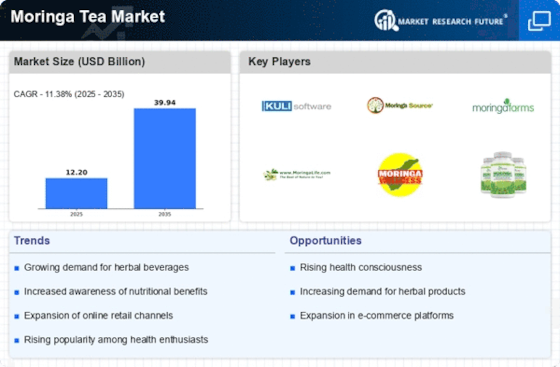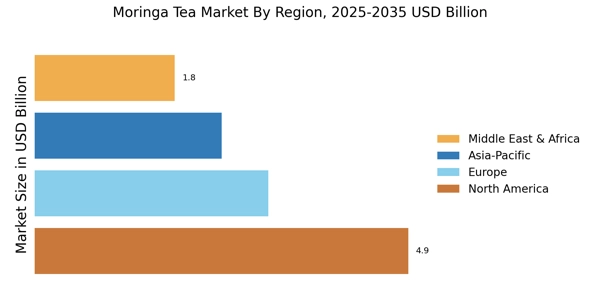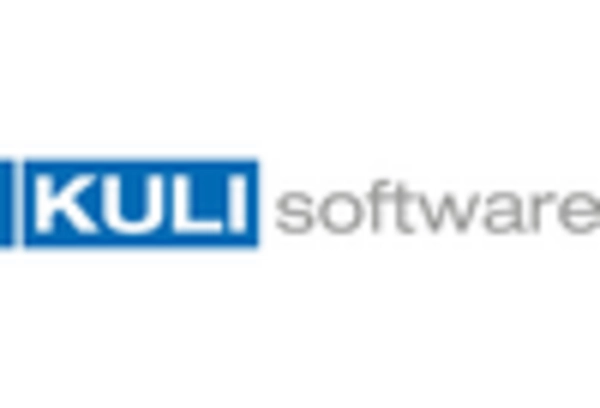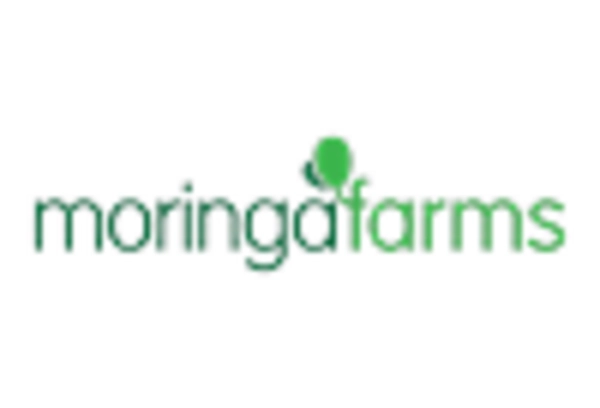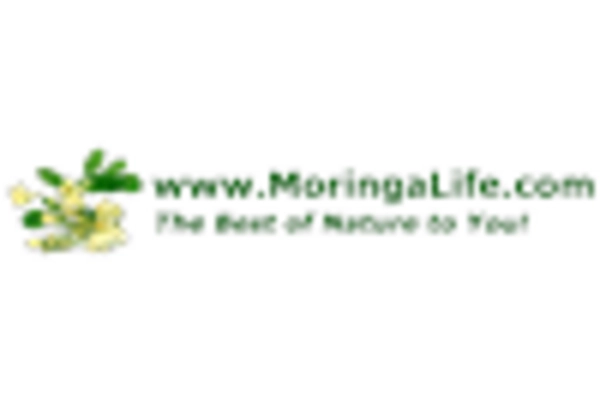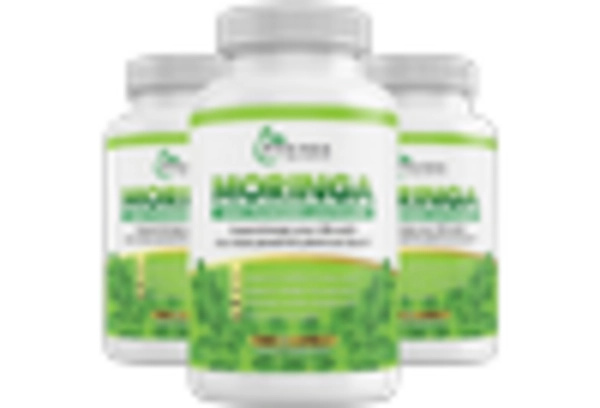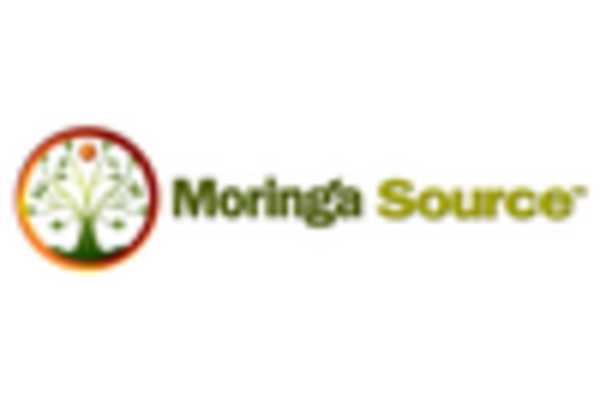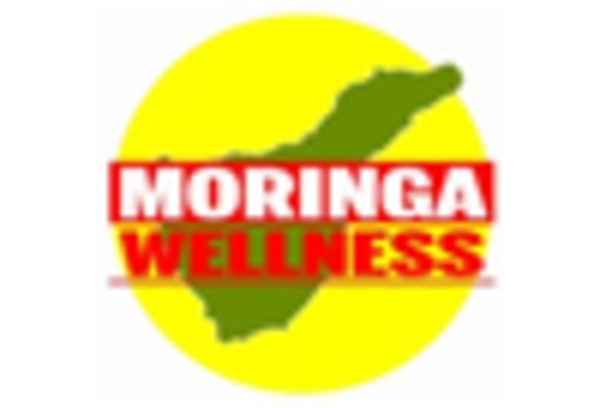Innovative Marketing Strategies
The Moringa Tea Market is witnessing a transformation due to innovative marketing strategies employed by brands. Companies are increasingly utilizing social media platforms and influencer partnerships to reach a wider audience. This approach not only enhances brand visibility but also educates consumers about the benefits of Moringa tea. Furthermore, the introduction of attractive packaging and unique flavor combinations is likely to entice new customers. As brands continue to innovate in their marketing efforts, the Moringa tea segment is expected to capture a larger share of the beverage market, appealing to both traditional tea drinkers and new consumers.
Nutritional Benefits of Moringa
The Moringa Tea Market is significantly influenced by the recognized nutritional benefits associated with Moringa leaves. Rich in vitamins, minerals, and antioxidants, Moringa tea is perceived as a health-enhancing beverage. Research indicates that Moringa contains essential amino acids and has anti-inflammatory properties, which appeal to health-conscious consumers. The increasing awareness of these benefits is likely to drive market growth, as consumers are more inclined to incorporate functional foods and beverages into their diets. This trend aligns with the broader movement towards wellness and preventive health measures, positioning Moringa tea as a favorable choice.
Rising Popularity of Herbal Teas
The Moringa Tea Market is experiencing a notable surge in demand, primarily driven by the increasing popularity of herbal teas among consumers. As individuals become more health-conscious, they are gravitating towards natural and organic beverages. Moringa tea, known for its rich nutritional profile, is gaining traction as a superfood. Recent data indicates that the herbal tea segment is projected to grow at a compound annual growth rate of approximately 8% over the next five years. This trend suggests that consumers are actively seeking alternatives to traditional caffeinated beverages, thereby enhancing the market potential for Moringa tea.
Expansion of E-commerce Platforms
The Moringa Tea Market is benefiting from the rapid expansion of e-commerce platforms, which facilitate easier access to a variety of products. As consumers increasingly turn to online shopping for convenience, the availability of Moringa tea through various e-commerce channels is likely to enhance market penetration. Data suggests that online sales of herbal teas have seen a significant increase, with projections indicating continued growth in this sector. This shift towards digital retail not only broadens the consumer base but also allows brands to reach niche markets effectively. Consequently, the Moringa tea market is poised for growth as e-commerce continues to thrive.
Sustainability and Ethical Sourcing
The Moringa Tea Market is positively impacted by the growing emphasis on sustainability and ethical sourcing practices. Consumers are becoming increasingly aware of the environmental and social implications of their purchases. Moringa, often cultivated in sustainable farming systems, aligns with these consumer values. Brands that prioritize ethical sourcing and environmentally friendly practices are likely to resonate with a conscientious consumer base. This trend not only enhances brand loyalty but also positions Moringa tea as a responsible choice in the beverage market. As sustainability becomes a key purchasing criterion, the Moringa tea market may experience accelerated growth.


